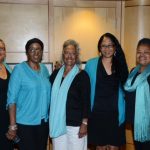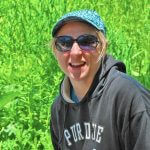Bob Zimmerman
Boston, Massachusetts
Bob Zimmerman is the Executive Director of the Charles River Watershed Association. Founded in 1965, CRWA is a private nonprofit environmental research and advocacy organization using science and the law to protect and enhance the Charles River and its watershed. He joined CRWA in 1990. During his tenure, CRWA has become a leading authority on the science of water in urban watersheds, and has developed programs that address stormwater pollution, water quality, low instream flow, nutrient loading, habitat protection and restoration, community zoning, suburban sprawl, sustainable development and water demand, the economics of water infrastructure transformation, and climate change mitigation and adaptation. Today, US EPA considers the Charles River the cleanest urban river in the nation. Prior to working at CRWA, he co-founded and was the Headmaster of the National Sports Academy at Lake Placid, a boarding school offering a preparatory curriculum and training program for winter sports athletes. He has an MA in English, and a BA in English and History from Central Michigan University. The Charles River and CRWA were the 2011 winners of the International River Foundation’s Theiss International Riverprize.
Bob Zimmerman was recognized as a River Hero at River Rally in 2018.
This interview was conducted by Carly Schmidt on August 29, 2018. Learn more about the Charles River Watershed Association.
Did you grow up around water? Where? What are your fondest early memories of rivers, lakes, or streams?
I grew up in Michigan in Midland which was a suburb in the Dow Chemical Company, so I grew up around pollution. The Dow Chemical Company was the largest choline plant in the world. After it snowed in the 60s, the snow turned black from the chlorine plant. In the later half of my youth, I grew up on Lake Michigan. I used to build dams and play in the creek, all these things that are typical to young kids.
Did any of these early experiences inform your decision to stand up for healthy rivers in your career?
I didn’t set out to pursue water protection as a career. My first job was starting a school for winter Olympic athletes in Lake Placid in 1977. I did that for 13 years. I was looking for jobs in Boston and was hired by Charles River because they thought I could make them some money as Executive Director. As I got into it, I was struck by the amount of money spent on environmental ends based on assumptions. As a country, we spend billions of dollars to discover that our assumptions are wrong.
What do you mean by “assumptions” Can you provide an example?
I started the research aspect of CRWA in 1993 after sitting through the Massachusetts Water Resources Authority present a plan to the State Department that would combine sewer overflows on the Charles. Their position was that the Charles was dirty, and that the river would fail swimming and boating standards. Their solution was dichlorination: taking raw sewage, chlorinating, dechlorinating, and putting it back into the river. We didn’t believe that their classification of the river was true. We started our own data acquisition and monitoring program in 1994 and proved that the NWRA was dead wrong. The river was swimmable and fishable until about the last 12 miles.
For the next 2 years, we identified problems. In Watertown, Massachusetts, there were sewage leaks because of a failed pipe. That was one source of pollution. We did an analysis of Boston University parking lots and we couldn’t figure out why stormwater from drains was dumping into the river during rainstorms. We didn’t believe that stormwater was that dirty. We tested stormwater in our own lab and discovered that something was happening to the pipe, with nothing to do with stormwater. What was happening is called illegal cross connections. A contractor hooks up wastewater pipes to sewage pipes. By identifying this problem and finding these pipes, we eliminated 1 million gallons of raw sewage going into the river, and as things got fixed, the river got cleaner and the quality of the river was measurably better. When the quality of the river improved, people stopped complaining about cost and started to get into the results. Most cities don’t fix the problem at all.
Is this a problem that was unique to Boston?
Not at all, it’s just that most cities don’t want to address the problem because of cost. After we built our lab, in 1996, we get a call in April from a rower. She was rowing past the Weeks bridge and there was a smell so awful she almost threw up. So I took a lab manager and went out and pulled samples. The water quality was so poor you could chew it. We called a press conference and said that people need to stay away from this area, it’s not healthy. We figured out that the problem was a 14×32–foot grease ball under Harvard Square that was causing sewage to skip up into a manhole cover, into a storm drain.
It sounds like you spent most of your time fighting the city and state agencies to get stuff done. Do you feel like your experience running a small data-driven organization gave you more power to mobilize?
Yeah, absolutely. We changed the nature of the debate when we started collecting data and doing research. We did all this monitoring and work with EPA to make some changes. We knew more than consulting firms, municipal authorities, and regulatory agencies. As a consequence, we were able to orchestrate the cleanup of the river through a collaboration with the State Department of the Environment and the EPA.
What water-related accomplishment are you most proud of?
You can imagine I’ve been asked this question a lot in the past 6 months, because I just retired. When I started in 1990, the Charles River was the fifth most contaminated open wound in the middle of Boston and Cambridge. Today, it is the cleanest urban river in the United States. On any given day, tens of thousands of people are around the river celebrating it. This is the single greatest achievement. We changed the nature of the game and the community appreciates the river. CRWA is now working on fully restoring flow.
What does being a part of River Network mean to you?
I have known River Network since 1994. I’ve been to every River Rally save two, and I was on the board from 2009 to 2017. Science changed the nature of the debate between us and the powers that be. Adding a litigator to the staff meant that we became an incredible threat. We could go to court and win. River Network was an exchange on the topics of the day, what was important, and how to do that.
How have you seen River Network change in the years you have been involved with the organization?
The most significant thing is what hasn’t changed. It is a service organization to watershed associations, riverkeepers, and conservancies throughout North America. What is significant is that the fundamental organizing principles remain the same, and that’s remarkable.
What positive changes would you like to see for water in your community over the next 10 years?
Water is still engineered as if we lived in the 19th century, when we built centralized water systems and wastewater systems. We are not in the 19th century and the systems upon which we depend are archaic and antithetical, and even if they work perfectly they’re doing incredible damage. We need to find a way to abandon them as soon as possible. Pursuing this ought to be the central organizing objective of environmental organizations around the world. Because if we continue to use the systems we built in 1850, and what we do is repair and extend them, we will get hammered by climate change.







